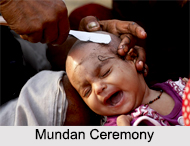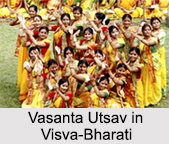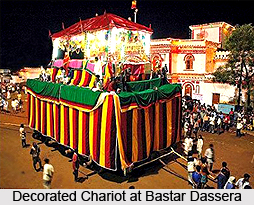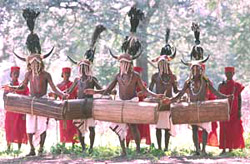 Indian Custom in Child Birth differs from culture to culture in India. These are shaped by the predominance of Hinduism. India is very rich in its customs and traditions which keep people binding jointly. The birth of a child can be a fortunate and sanctified time for a family. Pregnancy customs and traditions have been in the order of ever since once can remember.
Indian Custom in Child Birth differs from culture to culture in India. These are shaped by the predominance of Hinduism. India is very rich in its customs and traditions which keep people binding jointly. The birth of a child can be a fortunate and sanctified time for a family. Pregnancy customs and traditions have been in the order of ever since once can remember.
Indian Beliefs in Child Birth
Pregnancy is believed completely important in India and if a couple is childless, they will often seek out a piece of dried skin from the umbilical cord of a friend"s baby. Eating this is believed to develop fertility. Indian women generally look for guidance from their mother-in-law. The advice of motherly figures is very much valued and pregnant mothers will pursue the childbearing rituals passed down to them by their mother-in-law. Sleeping poses, eating habits and level of movement are all influenced by the visions of older women of the family. The maternal figures of the family pass on customs concerning nutrition, hygiene and daily activities throughout pregnancy.
Birth in the eighth month of pregnancy is believed that a cat might have entered the pregnant mother`s room in a previous confinement. A child born in Kartika month is responsible for misfortunate to others and themselves. Various rites are performed to protect against the consequence of their births. The parents must bathe with water drawn from seven wells and mix turmeric, sandal, ginger and other drugs to the bathing water. Water from seven wells or rivers is purified with various mantras. Charity is given to the Brahmins. A child born, when the moon is in the sixth or eighth zodiacal sign, is ominous. To prevent its evil influence on the 27th day of such birth, rice, camphor, a gold/silver piece or piece of white cloth are given in charity.
Effects of the Planets on Child
The planets, months and days have strongly influence the child which are as follows:
Saturn: If this planet rules the child, then anything black including materials like iron or a black buffalo, should be given in charity to the mother or child.
Mars: If this planet rules the child, articles like copper, Gur or jaggery, cloth dyed red or oil should be given in charity.
Sun: In case of sovereignty of this planet, things such as ghee, wheat, gold, a red coloured cow should be given in charity.
Moon: If this planet rules the child, white articles, such as silver, rice, a white cow, white cloth are the articles to be given as gifts.
 Mercury: If this planet rules the child, then parents are advised to take care of the health of the child. This is because she or he is prone to suffer from diseases like colic, diarrhoea, indigestion and leprosy.
Mercury: If this planet rules the child, then parents are advised to take care of the health of the child. This is because she or he is prone to suffer from diseases like colic, diarrhoea, indigestion and leprosy.
Venus: In case of sovereignty of this planet, green articles such as mung (green gram), fruits such as oranges or green clothes are given in charity.
Jupiter: If this planet controls the child, yellow things such as yellow clothes, gram pulse, yellow sweetmeats, gold, etc are given as charity.
Rahu (ascending node): If this planet rules the child, then coconut, ghee, sugar and Urad (pulse) are given to the child being controlled by this condition.
Ketu (Typhoon: the descending node): Samosa (a fried product) and bluish clothes are given in charity to the child if this condition rules him.
For the well being of the child and the mother, many kinds of pujas are performed before and after the birth of the child. Above mentioned charity is given in worship of planets and is called "Graha Puja".
Under natal astrology, the following thirteen Nakshatras are ill fated for childbirth:
1. Ashwini
2. Revati
3. Magha
4. Shelkhan
5. Mula
6. Jyestha
7. Garhan (eclipse)
8. Atepat
9. Shankrattt
10. Gand
11. Owudas(14th)
12. Amavas (15th)
13. Bhadra
The 4th in the Shelkhan, Jyestha and Revati asterisms and the first in Mula, Ashwini and Maghan are called "Gand"; childbirth in these consequences is unlucky.
If it occurs during the day, the ill luck is transferred to the father. If the birth takes place during the night and if during the morning or evening, the bad luck comes for the child itself. These are the unlucky days that are not auspicious for childbirth especially under these particular nakshatras in the dark half of the lunar month.
Different Indian Custom in Child Birth
There are lots of religious and cultural ceremonies to honour women in their pregnancies. Following are the different Indian Custom in Child Birth:
Godh Bharai: It is a traditional function where a small get-together of close friends and family members are held. They are invited to bless the pregnant woman. It is generally performed in the seventh month of pregnancy. In West Bengal, it is known as Sadh Ceremony.
Simantonnyana: It is performed in the seventh month. This is the equivalent of a baby shower. Prayers are offered for the mother and child with an emphasis on healthy mental development of the unborn child.
Jatakarma: It is performed of welcome the child into the family, by putting some honey in the child`s mouth and whispering the name of God in the child`s ear.
Karnavedha Ceremony: The ear-piercing ceremony (Karnavedha) is also considered highly important. These reparations are performed on both the genders. Hindus believe that the piercing of a hole in the lower lobes of the ear have benefits of acupuncture.
Upanayana: Upanayana (sacred thread) ceremony is performed when the child reaches school-going age. The three strands of the holy thread symbolize the three vows (to respect the knowledge, the parents and the society) taken before the set off of formal education.
Chhathi Ceremony: This ceremony is performed when the baby is six days old. This ritual is for women and takes place in the night.
Mundan Ceremony: This ceremony is performed for sanitizing baby"s soul. It consigns to the shaving off the first hairs on the head of the baby.
Namakaran Ceremony: Many religious and cultural traditions have some form of ceremony surrounding the naming of a newborn. The parents announce the name and its meaning to them, and blessings are believed to acknowledge that the child has entered into a convention with God.
Although Hindu scriptures explain the different Indian custom in child birth, it is possible that these will differ according to particular castes and regions.





